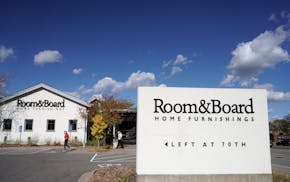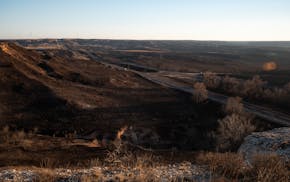my job
By Laura French • jobslink@startribune.com
Colleen Raschke demonstrated her potential for engineering when she was just a year old.
Sitting in her high chair, she began playing with a ballpoint pen. Soon, she had it fully disassembled; even more impressive, she also reassembled it.
In school, "I was always interested in math and science," she said. "I could visualize things in 3-D more than most people. My parents encouraged me. I was able to take an intro to engineering class in high school. It was exactly what I liked to do — use creativity, modeling things in the computer."
Having decided to pursue mechanical engineering, and wanting to stay in Minnesota, she chose the University of St. Thomas. "I liked the small class sizes and tight-knit community," she said. "Your professors actually get to know you as a student."
Even at St. Thomas, Raschke's classes included "six or seven" women out of "60 or 70" majors. Raschke said, "People think it's a lot harder than it is. I talked to friends who think you have to be this astrophysicist, but if you put your mind to it, you can do it. Junior year is the hardest — there are a lot of core classes."
In college, Raschke thought she wanted to go into biomedical engineering, but ethical issues with animal testing changed her mind. At a job fair, she met representatives from Burns & McDonnell, an international engineering, architecture and consulting firm with a local office in Minneapolis.
She has now been with the company for just over a year.
At Burns & McDonnell, Raschke said, "I am the first and only woman fire protection engineer. I haven't had a problem with it. There are other female engineers within the company. I can always go to them."
What does a Fire Protection Engineer do?
We call ourselves jacks of all trades. We deal with anything from airplane hangars to hospitals and factories. We look at the building or renovation plans and figure out what fire protection systems need to be incorporated — sprinklers, fire alarms, sometimes foam for protection of the equipment.
What's the most fun thing about the job?
Just to see all these different projects and realizing how many different fields and buildings you can work in. There's travel opportunities. I enjoy getting out and meeting with the client companies and just meeting people in airports.
What's the most challenging thing about the job?
You have a bunch of different projects going, trying to keep everything rolling and going to the date they want to get it back to the client.
What does take to be successful?
Communication is big. A lot of people don't view engineers as outgoing or enjoying to talk to people. I enjoy talking to people. It's helpful when you're talking to people. Around my family I've always been outgoing. In school I was always pretty quiet until high school. I started a new school my freshman year. I told myself, "You have to learn to be outgoing and meet as many people as you can." The other thing that's big is saying, "I made the mistake" or even "I could have made the mistake," if you don't know. Don't focus on why the problem happened, just how to fix it. That's the big thing. □

Room & Board transfers ownership to employees with stock plan
Stock market today: Wall Street falls sharply after dispiriting data on the economy, as Meta sinks
Congo questions Apple over knowledge of conflict minerals in its supply chain
Amazon cloud computing unit plans to invest $11 billion to build data center in northern Indiana

